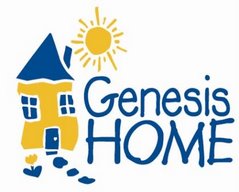Best Practices
“Success is simple. Do what's right, the right way, at the right time.” - Arnold Glasgow
Over the last two years, I've learned a lot about endurance sports best practices. From heart rate training to functional strength work to plyometrics, I've become a student hungry for the the information that will most effectively and efficiently help me reach my goals.
Those working to end homelessness also care a lot about best practices -- and, according to Genesis Home Executive Director Ryan Fehrman, those best practices are changing. Read his thoughts below.
A “Turning Point” in the Fight to End Homelessness
When visitors come for a tour of Genesis Home, someone will invariably ask about the reasons that bring families to the shelter. The “cause of homelessness” is a statistic that the agency tracks for its state grant funding and over time this measure can reveal underlying trends in the homeless population. For many years, unemployment, underemployment, and domestic violence have been among the leading causes of homelessness for families at Genesis Home. The last several years have seen another indicator cited with increasing frequency: Mental Health and Substance Abuse issues (MH/SA). In 2007, 46% of heads of household living at Genesis Home reported MH/SA issues upon admission to the agency.The paradox for shelter providers is that while MH/SA issues are clearly a contributing factor to the homelessness of both families and individuals, these same issues can make the communal nature of the shelter a less than ideal setting for housing those with special needs. Shelters have rules. They often house dozens, if not hundreds, of clients. The environment can be extremely stressful, especially so for those struggling with the twin demons of mental health and substance abuse. In the words of one Genesis Home client, “When you’re dealing with mental issues it’s extremely difficult. It’s not something you can fix quickly because it’s on the inside, and stressful situations – like being homeless – make it worse.” Out of this reality has come a new approach to addressing the needs of the homeless: Housing First.
Rather than moving clients through the traditional continuum of emergency shelter to transitional shelter to permanent housing, Housing First emphasizes that homeless individuals retain housing at higher rates when moved from non-housing directly into permanent housing with supportive services. Rather than treating housing as a privilege to be earned, housing is seen as a universal right. This new model is being promoted by the U.S. Interagency Council on Homelessness as a cheaper, more effective means of combating an age-old problem. Cheaper in that paying market-based rents for formerly homeless clients costs taxpayers less than emergency room visits, property crimes and incarceration. More effective because results show that almost 90% of Housing First clients retain their permanent housing compared to 75-80% of clients who complete the traditional continuum of care (The Housing First Program for Homeless Families: Empirical Evidence of Long-term Efficacy to End and Prevent Family Homelessness by Susan D. Einbinder and Tanya Tull, Los Angeles, CA, June 2005). Durham’s “Ten Year Results Plan to End Homelessness” embraces the principles of Housing First to emphasize the creation of new permanent housing in our community.
So what does all of this have to do with Genesis Home? A lot.
Over the last two years, Genesis Home has taken steps to incorporate Housing First principles and best practices into its programming. Admissions have been streamlined to allow for faster entry into Family Matters. Housing assistance for rental and utility deposits is provided to graduates to expedite their placement into permanent housing. The agency’s mission statement was revised to emphasize the importance of “housing” over “shelter”. But the biggest step that the agency has taken over the last two years was the addition of its Turning Point program in late 2006.
Turning Point serves homeless families that have a head of household with diagnosed mental health, substance abuse, or developmental disabilities. Often two or more of these conditions are co-occurring. Funded by a grant from the Department of Housing and Urban Development, Turning Point supports five scattered-site permanent housing units serving five families in local apartments. Clients work or attend school while continuing to receive supportive services and case management from Genesis Home’s Family Services Coordinators. Client families work with specialized providers to address their disabling condition while Genesis Home staff assists clients in securing employment, attaining educational goals, locating quality child care, and maintaining residential stability. Several families have been referred from Family Matters directly into the Turning Point program. In the words of one current Turning Point parent, “I’m still working with my case manager. She has helped me maintain the discipline I learned at Genesis Home. Today, everyone notices a difference in me and my son. We’re ourselves again. My son is back to being a happy, normal little boy.”
It is clear that Turning Point is helping some of our community’s most vulnerable and at-risk families. While permanent housing is a new direction for the agency, the program taps into the agency’s expertise in serving families while moving the agency closer to a true Housing First model. While the approaches are different, it is striking to see the similarities between the families at Turning Point and the families in Family Matters. Both groups are working to create better lives for their families, and both have realized that they need help to make their dreams a reality. While Turning Point marks a new chapter for the agency, it is an endeavor consistent with the mission and vision of Genesis Home’s founders: To make homelessness history for families in Durham.
















